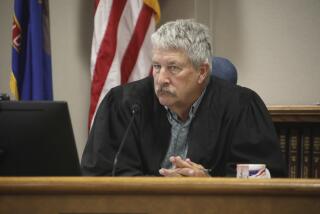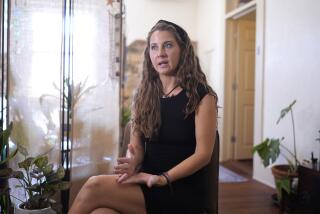Following in Dr. George Tiller’s footsteps
WICHITA, Kan. — Julie Burkhart’s high heels click against freshly laid tiles as she tours the construction zone. Wires jut from walls waiting for connection, and the smell of new paint fills the air. With the countdown on, her walk and talk say crisp determination.
Next week the newly remodeled South Wind Women’s Center is scheduled to open. Under heavy security, doctors will perform abortions, as well as offering other gynecological services.
Burkhart bought the unremarkable 1970s-era building last August through her foundation, Trust Women, for an undisclosed amount. It is better known by its old name: Women’s Health Care Services. That was when it was run by Dr. George Tiller before he was fatally gunned down on May 31, 2009.
The clinic had been closed for nearly four years.
Two weeks before the clinic’s reopening, Burkhart pushes open the silver double doors to the empty surgical room. Her pace slows. A sadness flickers across her eyes.
This room has been a symbol for decades of a fierce national fight over abortion, and that battle is about to return to her city, her doorstep.
But then, just as quickly, she shakes it off. The political activist in her takes over. There is work to be done.
For seven years she had worked as Tiller’s spokeswoman and political liaison. She had admired him even longer, dating back to 1991, when she was a graduate student and witnessed the onslaught of protests against his and other clinics in what abortion foes called the “Summer of Mercy.”
The battle has taken on new urgency this year, with antiabortion forces gaining momentum as more states ban abortion at earlier stages of pregnancy. Ten states, including Kansas, have enacted legislation to prohibit abortion at 20 weeks of pregnancy or earlier.
This month, Arkansas passed a law to ban most abortions at 12 weeks if a fetal heartbeat is found. On Tuesday, North Dakota Gov. Jack Dalrymple signed three antiabortion measures into law, including one that bans abortions after the detection of a fetal heartbeat.
Dalrymple, a Republican, acknowledged that the heartbeat law is an attempt by a state Legislature to “discover the boundaries of Roe vs. Wade,” the 1973 Supreme Court ruling that a woman has a constitutionally protected right to an abortion until the fetus is viable outside the womb.
Cheryl Sullenger of Wichita-based Operation Rescue says antiabortion forces are mostly focusing on legislation, and Kansas may soon join Arkansas and North Dakota in passing a so-called heartbeat law. “It’s only a matter of time before they are sent packing like all the others,” she said of Burkhart and the new clinic.
Sullenger seemed unaware of the scheduled clinic opening. But she promised “a continuous presence [of protests] like there was when Tiller was there.”
Because he was one of the few doctors in the nation to perform late-term abortions, Tiller had long been a target. He was shot in both arms in 1993, and his clinic was bombed in 1985. Called “Tiller the Baby Killer” on national TV, he wore a bulletproof vest and rode in an armored car. He was gunned down as he served as an usher at his church one Sunday morning.
Burkhart remembers that day with brutal clarity. She was attending a conference in Washington and her cellphone would not stop buzzing. When the grim news was confirmed, she ran to the bathroom and wept.
“Everyone who was close to him sort of fell apart,” Burkhart said. She had devoted her career to reproductive rights but was suddenly unsure she could carry on.
In the four years since Tiller’s murder, legal abortion not only vanished from Wichita — the largest city in Kansas, with a metro population of about 600,000 — but from huge swaths of the Midwest. A few clinics provide abortions in the Kansas City area about three hours away, but in this land of small towns and vast prairie, women would travel hundreds of miles to Tiller’s clinic, from as far away as Texas or Oklahoma, partly because he performed late-term procedures.
The passage of new restrictive laws makes the reopening of the Wichita clinic all the more remarkable, said Elizabeth Nash, state issues manager for the Guttmacher Institute, a New York nonprofit research organization that supports abortion rights.
“That clinic is very symbolic and has been for years. When we talk about protecting women’s rights, the rubber really hits the road in Kansas,” she said. “I guess the message is try and try again.”
After Tiller’s death, Burkhart didn’t know whether she could set foot in Kansas again. She had moved to St. Louis just before he was killed, but over time the tug of Kansas and its women pulled her back. “I’m from that area,” she said. “Why should I or any other woman have to go without medical service and be deprived of our rights just because of where we live?”
She returned to Wichita with her family in August 2011 and began raising money. She cast a wide net to persuade doctors from around the country to come and perform abortions. Initially she got no takers. Two doctors agreed but backed out.
Burkhart also fought with City Hall as opponents tried to block building permits. She called half a dozen architects before one was willing to work on a clinic that performs abortions. Contractors said they were worried about being boycotted.
Then late last year things began falling in place. An ob-gyn in her mid-40s agreed to join the staff full time. The tall, striking woman from the Southwest had practiced medicine for 14 years but had never performed an abortion. She learned how. She bristles at the characterization that she does not respect life.
“I delivered 20 babies a month for the past 14 years. I’m anything but against life,” she said. She asked that her name be withheld for her protection.
Two other doctors will fly to Wichita to work part time. Their identities are also being withheld.
One, in her 30s and from a Midwestern city, said in an interview that she was in medical school when Tiller was killed. Last fall she got an email from a reproductive rights group asking whether she was available. She said yes, not sure where she would work. Burkhart called and said it was Wichita.
Every other week a driver will pick her up at an undisclosed airport, and she has been told to lie down in the back seat so no one will see her. “It would be much easier not to do this. That’s what almost everybody says, so that’s why I will,” she said.
Unlike Tiller, the new clinic will not do late-term abortions, instead providing abortions up to 14 weeks of pregnancy.
Burkhart knows her life could be in danger. She worries most for her 12-year-old daughter’s safety in their home. Protesters have been there twice. Last month one held up a sign: “Where’s your church?”
Burkhart sees it as a reminder that Tiller had been killed in his church. Neighbors have been given wanted-style leaflets that say: “Let’s bring Julie to the Lord.”
She takes her strength from Tiller’s memory. “He used to say he felt he owed it to women. He would say, ‘Everyone needs a little help sometimes.’” She figures it’s her turn.
More to Read
Sign up for Essential California
The most important California stories and recommendations in your inbox every morning.
You may occasionally receive promotional content from the Los Angeles Times.










